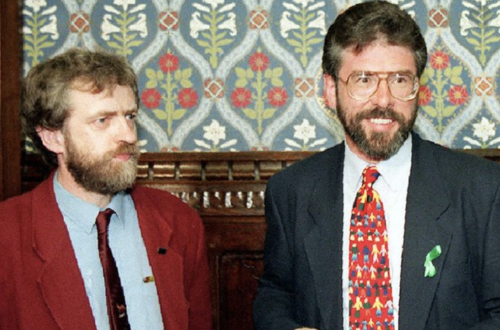This guest-post by Maajid Nawaz is a cross post from the Wall Street Journal.
Recent events in Egypt indicate the beginning of the end for the Middle East’s fascination with Islamist opposition politics. Egypt’s revolution is no deathblow to Islamism—it is not even a debilitating injury. But when thinking in terms of decades-long trends, it is the start of a new intellectual era for the region.
The 1950s and ’60s witnessed the rise of pan-Arab socialism. Autocratic strongmen brought in by military coups were the order of the day in Egypt, Syria and beyond. By the 1980s and ’90s, there was a fierce explosion in angry Islamism, as seen in the jihadist insurrection in Egypt and the rise of both Hamas and Hezbollah.
But with failed Islamist experiments in Iran, Sudan and Afghanistan, the new millennium saw a creeping transition. As I did, the region’s young, tech-savvy youth developed new ambitions, away from Islamism and toward secular democratic politics. Democratic activism is the new political fashion.
Naturally, the potential for democracy in Egypt has raised fears that Islamists will take over, establishing a popular yet anti-Western and anti-Israel leadership. Being the most organized opposition group, the Muslim Brotherhood is the focus of these fears.
Alarmists would have us believe that we are on the brink of another Iran-style Islamist takeover, with the destruction of Israel as its obsession. The complacent, meanwhile, dangerously understate the threat. Interestingly, they are the very same voices who argued as recently as a month ago that the Brotherhood represents the only credible opposition in Egypt. Somewhere in the middle stand reasonable voices calling for critical engagement.
The Brotherhood is still formally committed to some of the more worrying Islamist principles of Hassan al-Banna, who founded the organization in 1928. Its popular rallying cry is “Allah is our objective; the Prophet is our leader; the Quran is our constitution; Jihad is our way; and death for the sake of Allah is the highest of our aspirations.” And it insists that Islam must be the only source of legislation, and that non-Muslims and women cannot become heads of state.
The group’s official line, therefore, inspires little confidence, especially as its current leader is the conservative Muhammad Badie (who was a cellmate of mine in 2002, when I was held as a political prisoner in Cairo’s Mazra Tora prison). However, with a reformist middle-aged faction—led by another former cellmate of mine, Abdul Monim Aboul Fatouh—and a disillusioned youth, the Brotherhood is certainly no monolith.
United by the popular imperative to remove Hosni Mubarak, the group rarely allowed dissent. Despite this, in 1996 a group of prominent but frustrated younger members broke off, foundingHizb al-Wasat (the Center Party), which included among its founders Christians, unveiled women and non-Islamists. The Brotherhood’s old guard reacted dismissively, but it seems that the founders of the Center Party were years ahead of the curve.
Last year, the Brotherhood had heated internal elections and middle-aged reformists were expected to do well. But under shady circumstances, and to the dismay of many frustrated younger members, they lost their seats at the leadership council. Things have never quite been the same.
Many younger Brotherhood activists, including friends of mine who had been jailed and tortured for their affiliation, froze their membership and joined the ranks of Egypt’s increasingly bold secular youth activists. The groups included the Egyptian Movement for Change and the April 6th Youth. The effect was that the Brotherhood had to play catch-up when these secular democratic forces led the way in the January 25 uprising. The simple fact is that Egypt’s most organized opposition group did not organize Egypt’s only people’s revolt. In addition, it is clear that the Brotherhood has no Khomeini-like figure capable of hijacking this revolution.
A recent poll by the Washington Institute for Near East Policy found that Muslim Brotherhood leaders received barely 1% of Egyptians’ support for the presidency. Only 7% of respondents believed that “the [Mubarak] regime is not Islamic enough.” This suggests that the Brotherhood is likely to win some seats in parliament but unlikely to produce the next president or prime minister of Egypt.
How, then, should policy makers think of the Brotherhood?
In a recent hearing of the U.S. House Intelligence Committee, Director of National Intelligence James Clapper asserted that the Brotherhood is a “largely secular” group. Such blunders are grossly counterproductive, as they hinder the clarity of understanding needed to plan for various contingencies, like Islamist ascendancy.
On the other hand, the alarmist approach—taken by many in Israel, for example—would seem to trade long-term regional security for short-term stability. As the former George W. Bush administration official Elliott Abrams remarked, “the Israelis apparently do not see the irony that they are mourning the departure of the man who created the very situation they now fear.” (Returning to the recent Washington Institute poll, more Egyptians supported peace with Israel than rejected it, and only 18% approved of either Hamas or Iran.)
British Prime Minister David Cameron and former Prime Minister Tony Blair have taken a more cautious and reasonable approach. In his groundbreaking speech in Munich, Mr. Cameron declared, “I simply don’t accept that there’s a dead-end choice between a security state and Islamist resistance.” And concerning the risk of a Brotherhood takeover, Mr. Blair said that “The truth is I don’t know and neither does anybody else. And therefore what I am really saying is, don’t be hysterical about it but don’t be complacent about it either.”
As long as we engage all peaceful opposition forces with our eyes open, Egypt can become a beacon for Arab democracy. Like Turkey’s, Egypt’s largely secular army is wary of an Islamist takeover. If we can help Egyptians build a democratic society for the first time in their history, we may see the dawn of a new post-Islamist age that transforms political dynamics world-wide.
Maajid Nawaz, a former prisoner of conscience in Egypt, is executive director of Quilliam, a counterextremism think tank in England.


